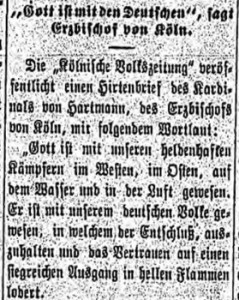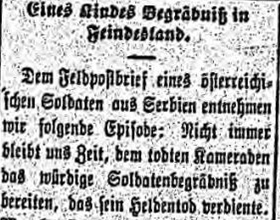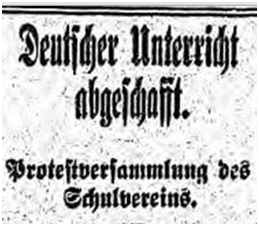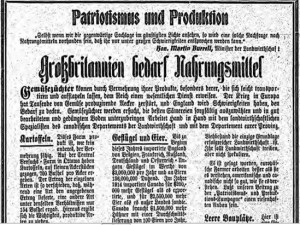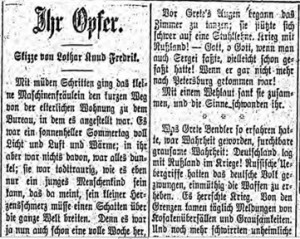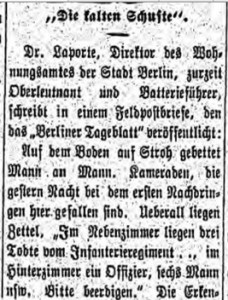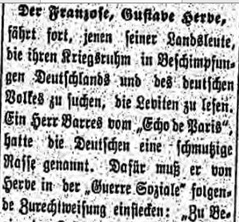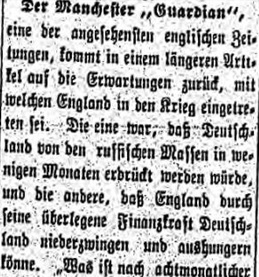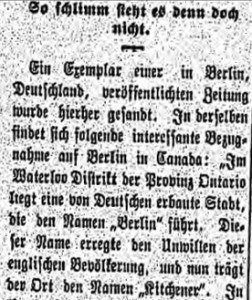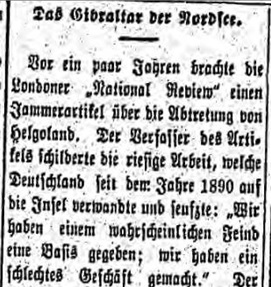The pastoral address of Archbishop von Hartmann from Cologne was printed in the “Kölnische Volkszeitung”. It said that God would be with the heroic German fighters in the west, in the east, on the water and in the air. The archbishop said God would be with the German nation which was willing to endure the pain of war because it trusted in God to provide victory in the end.
(„‘Gott ist mit den Deutschen‘, sagt Erzbischof von Köln“, Berliner Journal, 17 February 1915)
